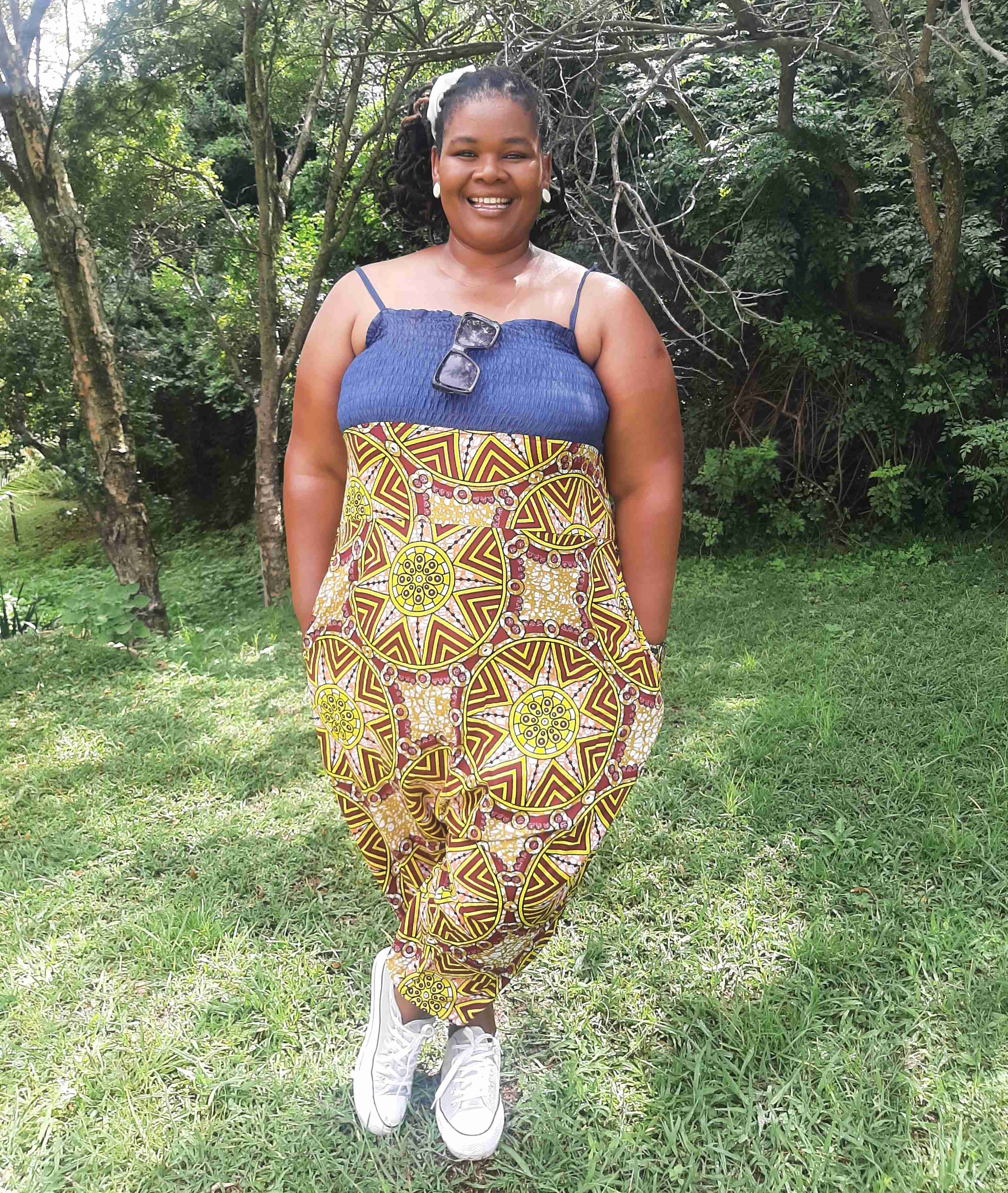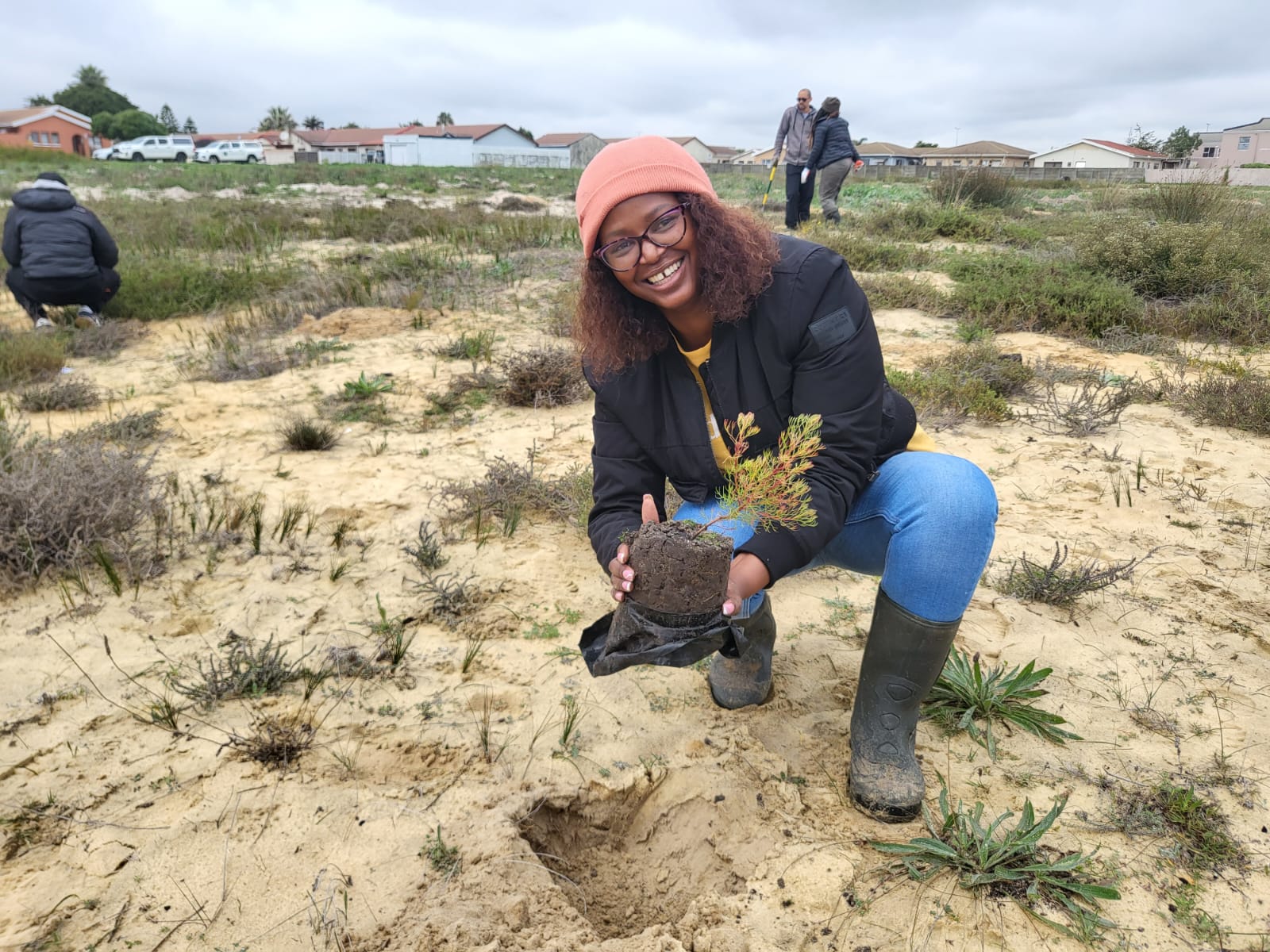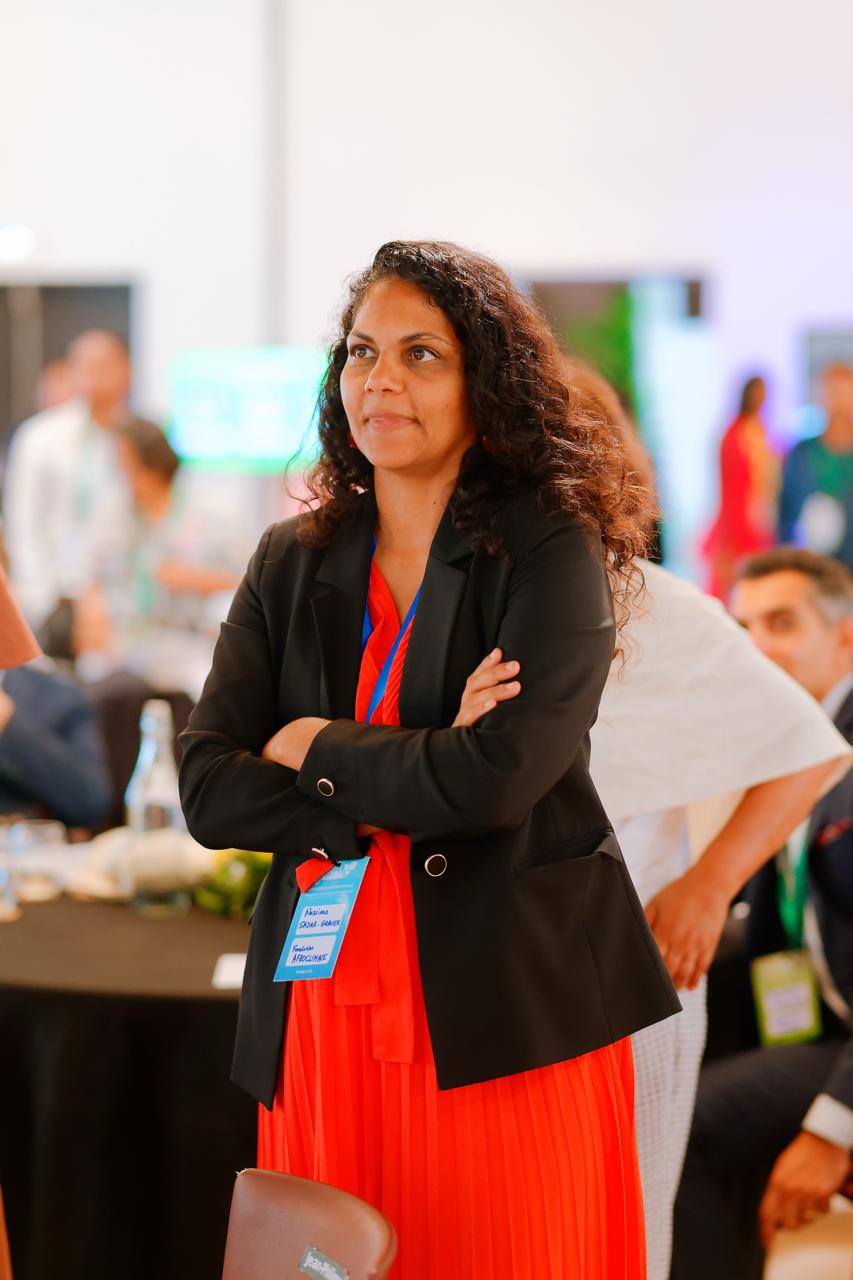A common question that really troubles me is: Are women ready to lead? It's as if there has to be a preparatory leadership class for women.
Xolelwa (Xoli) Hlalu is a driven, relentless pursuer of excellence.
Her quest—to paraphrase Ernest Hemmingway's words—is not to be superior to her fellow wo(man) but, rather, her former self.
On her journey to bettering herself, she is working towards replacing long-held limiting beliefs with those that help uncover her full potential.
She is a seasoned environmentalist with vast experience in environmental management and education, with Masters in Environmental Management. Currently, she manages the Walter Sisulu National Botanical Gardens based in Johannesburg, under the South African National Biodiversity Institute (SANBI) and has enrolled with the University of Free State for a Master's in Development Studies.
The Women for Environment 2022 fellow shares insights from her journey with Damaris Agweyu.

Xoli, what were you taught at a young age that you had to unlearn in adulthood?
That as a woman, I can't lead.
I was taught at home, in my church, and in my community that women should be submissive. And wait to be led by men.
A common question that really troubles me is: Are women ready to lead? It's as if there has to be a preparatory leadership class for women.
You've managed to shatter that notion. How did you get here?
I was raised in a rural area by my grandmother, and even though this was something I was unaware of at the time, there was always that element of conservation in our daily lives. We were big on rain harvesting, water conservation, recycling and land cultivation.
I studied horticulture and then moved into an environmental management degree. The research began to make sense relative to my upbringing. I started becoming involved in projects that deal with conservation and environmental education in communities across the country.
In 2004, I joined SANBI, and we ran a program called Greening of the Nation. We did a lot of work within communities, creating awareness around the importance of conservation. And my passion for community-driven projects grew from strength to strength.
During the various community workshops, I had no choice but to lead the sessions. Even though I came with the skill and valuable content, I often subdued myself. Through my actions. And my words. Especially around men.
I would admire my boss and how he led. But because I'd never seen myself in the people with that level of authority and power, I never imagined I could one day lead in this field. To me, that role was designated for other people; white males, to be precise.
My boss left, and the vacant position was advertised. There had been some transformation regarding the kinds of people who managed the gardens, but I thought, No. I'm not suitable for the position. Still, I applied. I was called for the interview and went in fully prepared. The director of human resources' feedback was positive. He said they'd never had such a well-informed person on project management. When I was told I'd make it, I couldn't believe it!
Coming into a position predominantly held by white males, what are some of the challenges you've had to overcome?
Acceptance from the public. And by the public, I mean people who use the Botanical Garden, a 300-hectare land with many stakeholders and partners. Some of these stakeholders are privileged white people who have been visiting since childhood—a time when black people were not allowed to set foot in botanical gardens. The challenge here was gaining acceptance from such people. Someone will come to the office, see my face and leave without saying a word. I've seen some pass my office and go to my colleague's office because he is white and has been working here for 20-odd years. This has happened on numerous occasions.
The second challenge comes from my fellow black people, who don't think I can do the job. Some think I am here because of affirmative action, so I must not be competent. And so they, too, would rather deal with a face they "are sure" of—a white face.
These things have led to many occasions where I have doubted myself, questioning if I belong here.
And so, I have spent a lot of time trying to prove myself.
How do you navigate these challenges?
I have been working to build a strong self-belief. Because I know I am capable. I don't have to prove a point to anyone, but if I must, then my performance speaks for me. Amongst other conservation-related targets, we are required to generate revenue, increase visitor numbers and bring in diversity. I've managed to achieve these targets. I have never underperformed.
Attending a leadership and management course was instrumental in my journey. It equipped me with the skills to manage projects and relationships with our stakeholders.
It's taken time, but I have seen a change in the last four years. Today, when people come in looking for the manager and see my face, they will sit and talk. I don't know whether it's a change in me or people's perspectives, but there has definitely been a change.
What does good leadership mean to you?
Understanding yourself and those you are leading.
We have targets to achieve, but if I don't take the time to understand my team and lead with them, we will never reach our goals. To enable this collective form of leadership, I ensure that my team is aware of our annual plans and vision. Then we leverage each other's skills and experiences to make it happen.
Because we are a very diverse team in terms of education, race and ethnicity, reaching a consensus takes even more work.
The other thing which helps me lead effectively is the fact that I'm a people person. Of course, the disadvantage is when you have such a diverse group, you can't please everyone. What I do is quiet myself, listen, take advice and assess it. The important thing is people need to know that their voice matters and they matter. I learned this from my grandmother, who raised me. She always said, "respect every human being regardless of their status. When they talk, listen because you might learn something from them". Those words still play in my mind as if I had heard them yesterday.
Can you tell me more about how she raised you?
It's funny that I always mention her even though she passed on in my early years. She was a very important person in my life.
While we didn't have much in terms of material wealth, there was a lot of love in our home.
We used to all gather outside on summer nights to watch the full moon and listen to stories. In winter, we would sit around "Imbawula", an old 20-litre tin container with holes on the sides filled with firewood. That was our fireplace.
Once a month, grandma cooked the "nicer meals"—the curries or roasted meats. She would prepare extra dishes for our neighbours, and my cousins and I would walk from door to door, delivering the plates of food. This would happen late at night; back then, there was no electricity, so we walked with those plates in the dark. At that time, all I wanted to do was get back home to eat my share of the food.
As kids, we did not always appreciate grandma's giving heart. Still, she was teaching us something—the spirit of sharing and caring for others.
When she passed on, I had to go and live with my father, but she planted the values I continue to live by today.
Is she the one who encouraged you to pursue your line of work?
At the time, the traditional careers for women were teaching, nursing or social work. Grandma used to say I'd make a great social worker. Today, I translate this to empowering women and young people. I want to see them improve and flourish. If I link that to my upbringing, there is definitely a synergy between what she believed I was good at and what I dream of becoming.
What have you learned from your WE Africa journey?
I've learned a lot, and the journey has just begun. The program came when I was struggling to cope with several issues at both the personal and professional levels. WE Africa gave me a safe space to open up about these struggles. It has also helped me respond to difficult situations with greater clarity and wisdom.
I have faced difficulties professionally where I was unable to set up boundaries. This led me to think that I am not doing enough or that I was being victimised.
The WE Africa coaching sessions helped me find ways to articulate my plans while setting boundaries. I realised I'd allowed the toxic situations to persist. As I put my new knowledge into practice, things started to change. Today, issues are addressed with me differently, and I respond differently. What I now need to work on is my visibility.
What is it about visibility that scares you?
I've always been that person that does the work in the background but will never publicly present it—unless I absolutely must.
In my job, I regularly need to address people who do not speak English as a first language. So I've always worried about the appropriate way to communicate. Essentially, I am scared of making mistakes, so I remain in the background and let others shine. But the WE Africa program has emphasised that you need to be visible to achieve your goals. You cannot remain in your box.
Do you feel ready to be visible now?
I'm working towards it. My work has always been at the Botanical Gardens, and I've gotten comfortable with it. I want to go out, be exposed and expose myself on other platforms. I am driven by the need to plough back into my community, where so many young people have dreams but little hope of actualising them. I need to be visible if I want to achieve this.
The ultimate goal is bigger than my community. It's engaging Africa's women and young people in environmental management.
What is that one thing you need to work on to come into your own fully?
I think I would be very far if I had been more confident. It goes back to my upbringing, the schools I attended, and the country I was born into. I was not directly affected by apartheid, but the people who raised me were. And I have experienced the effects of their trauma.
I was raised to be humble. This has suppressed me on many occasions. I'm not someone who will go out there and get what I deserve because I should "remain humble". And while humility is a good thing, it shouldn't stop you from exploring your full potential.
***
This interview is part of a series profiling the stories of the 2022 WE Africa leadership programme fellows, African women in the environmental conservation sector who are showing up with a strong back, soft front, and wild heart.




